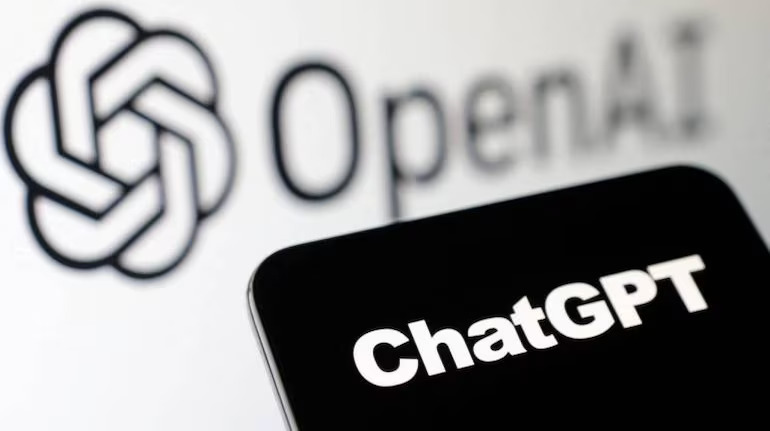Emotional Intelligence (EI) is now considered an essential trait for success on both personal and professional fronts. EI is also often referred to as Emotional Quotient (EQ). It is being widely recognised as a valuable indicator of job success and performance.
What is Emotional Intelligence and why is it important?
EI is the ability of an individual to use emotions to communicate and relate to others effectively and constructively. It indicates an individual’s ability to express and control their emotions while also having the ability to understand, interpret and respond to the emotions of others.
EI entails aspects such as emotional perception, reasoning with emotions and having the ability to understand and manage emotions.
Emotionally intelligent individuals can understand, use and positively manage their own emotions. They use their emotions to relieve stress, communicate effectively, empathise with others and defuse conflict. These attributes empower them to navigate the challenges of life and build strong relationships. While EI enhances the quality of the personal life of the individual, it also works wonders in their professional lives. This is the reason it has become such an important attribute when hiring a candidate.
Why does EI matter in hiring the best talent?
EI has emerged as an invaluable skill that employers look for in potential employees. Data reveals that 71% of hiring managers value EQ over IQ.
This is because of the inherent traits in people with high EQ, including:
- Problem-solving
- Staying calm under pressure
- Shouldering responsibilities
- Having the ability to resolve conflicts
- Empathising
- Responding positively to constructive criticism
- Being good team players
These and other similar and related traits make candidates valuable assets for any organisation. Hence, organisations across the globe are making a beeline for candidates with high EQ.
Some remarkable statistics on EI:
According to TalentSmart, approximately 58% of job success is attributed to EI.
75% of Fortune 500 companies use EI for training and testing.
90% of top-performing employees have high EI.
Now that we have established the significance of EQ, the question that arises is, “How to assess the EQ of a candidate?”

EQ can be assessed with the help of personality tests.
Before we delve into the nuances of personality tests, let us understand what “personality” implies. Personality is a word that we tend to use casually without paying much heed to what it implies.
Britannica defines personality as “a characteristic way of thinking, feeling or behaving. It embodies moods, attitudes and opinions and is expressed in the way an individual interacts with others.”
The definition of personality has evolved with time. The most widely accepted approach to personality currently suggests that it has five dimensions such as extroversion, agreeableness, conscientiousness, neuroticism and openness.
Personality test and assessment refers to tools and techniques that measure the traits of an individual across different situations. Personality tests are not new. The earliest personality tests were conducted in the 19th century. They have undergone several changes since. Today, they are being widely conducted for psychoanalysis. Recruiters use them to assess the emotional intelligence of candidates for recruitment.
Personality tests elicit responses from performers about their:
- Behaviour
- Preferences
- Emotional responses
- Interactions
- Motivations
The test results help in evaluating the personality characteristics and patterns of the performer. These patterns reflect the EI of the performer.
Recruiters use these tests to develop an image of the morals, beliefs and character of the candidate based on a series of questions, ratings and sample scenarios. Insights into the personality of a candidate enable recruiters to assess how well the candidate will fit into the company culture. These tests also reveal how the candidate will perform in the potential position or stay motivated or inspired. All these insights facilitate selecting the best talent and preventing costly turnover.
As per Psychology Today reports, 80% of Fortune 500 companies use personality tests to vet for upper-level positions.
According to a report by the Society of Human Resource Management published in 2017:
- 32% of HR professionals use these tests to vet for executive roles.
- 28% of HR professionals use personality tests to hire candidates for middle management positions.
Personality tests enhance the hiring process by facilitating the recruitment of candidates who can fit in easily and are motivated. They have become popular among recruiters because of the benefits that they offer.
5 advantages of using personality tests in the hiring process
1. The process of shortlisting candidates is simplified.
When a company advertises a vacancy, there is a likelihood of receiving numerous applications. Sifting through the applications and shortlisting the right candidates can be a nightmare if there are several applicants with similar educational backgrounds and work experience.
Personality tests help to eliminate candidates who are not the right fit for the organisation and simplify the task of narrowing down the selection.
2. Targetted interviews may be designed.
TA professionals can design the interview questions based on the results of the personality tests. They can ask specific questions to understand the approach of the candidate to real-life problems relevant to the job role.
3. Unconscious bias can be reduced.
One of the areas of concern in the recruitment process is unconscious bias while hiring. Aspects like first impressions, communication skills, racial and gender biases, etc., can lead to bad hires. Personality tests are designed to test the skills that are relevant to the job role. They increase the odds of hiring the right candidates.
4. Company culture is enhanced.
Personality tests accurately identify candidates who are the right cultural fit for your organisation. Such candidates can help establish harmonious relationships between employees. By hiring such candidates, your company’s bottom line and morale will improve.
5. Employee turnover is reduced.
A common hiring problem that businesses encounter is high turnover, where typically candidates resign even before they get started on their role. Hiring candidates based on the outcomes of personality assessments reduces employee turnover.
How to conduct personality tests

There are different types of personality tests:
Myers Briggs
It is one of the most popular ways to test the personality of a candidate. Myers Briggs Type Indicator (MBTI) measures the traits of an individual by evaluating his or her responses according to four categories.
These categories include:
- Extroversion vs introversion
- Intuition vs sensing
- Thinking vs feeling
- Judging vs perceiving
Hogan Personality Inventory (HPI)
HPI helps predict an employee’s job performance based on personality tests. This test leverages the five-factor model to evaluate candidates. It works on the principle that five traits make up an individual’s personality, including:
- Extroversion
- Neuroticism
- Openness to experience
- Agreeableness
- Conscientiousness
DiSC Behaviour Inventory
It is one of the oldest types of personality testing. The DiSC Behaviour Inventory helps improve teamwork, communication and productivity in the workplace. Although this test dates back to 400 BC, it is relevant even today and is widely used.
It categorises the personality of an individual into one of the four types:
- Dominance
- Influence
- Steadiness
- Conscientiousness
Caliper profile
This test is used while screening candidates to evaluate how the personality traits of a candidate correlate to their performance in their job role. It is a comprehensive test that reveals both the positive and negative aspects of the candidate’s personality. These insights help recruiters assess how the candidate will perform in a certain role. The test can be customised to target the specific traits required for a specific role.
How online tools can assess personality assessment
Traditionally, personality tests were conducted using questionnaires and self-reports. However, these tests provided inaccurate results. There were instances of candidates faking responses to get hired. Besides, there was a limitation to the number of times a questionnaire could be administered. Questionnaires often carried unconscious bias.
Online tools overcome the fallacies of traditional testing methods. These tools leverage data to assess a candidate’s personality without bias. Today, high-dimensional, granular data is available from multiple sources. This data simplifies analysis of human behaviour. Some sources of data include social media footprints, data carried by wearable devices, data gathered from the daily activities of an individual and more.
Machine Learning (ML) which is a subset of Artificial Intelligence (AI), is spearheading the technological revolution in the domain of personality testing. ML algorithms can seamlessly manage large volumes of data including thousands of attributes. They can also identify patterns in datasets that humans might not be able to detect. ML bots provide accurate, objective and automated test results.
There are several AI-based tools for conducting personality tests. Choosing the right tool can feel daunting. It is beneficial to compare the features of different tools and select the one that best meets your hiring needs.
HirePro is a leading hiring platform that makes the hiring process seamless. Our platform offers custom assessments for any role, domain, or seniority across industries. The tool offers standardised tests that can be customised according to the specific job role. These assessments help you evaluate your personality, aptitude, and behavioural competencies, in addition to technical and domain skills.
Resources:











